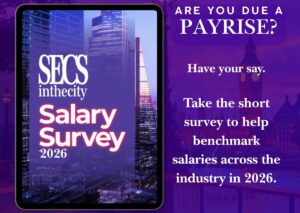We chat to Dr Preethi Daniel, from London Doctors Clinic, to find out the importance of having a lunch break and what employers can do to support their staff
How does food Improve concentration, productivity and healthiness?
The right foods will improve brain function – well, nothing new there, I hear you say. But paying closer attention to glucose intake with definitely help to improve productivity.
Some foods that help brain power are nuts especially almonds, dark chocolate and blueberries. Just as athletes improve their performance by eating the right things, concentration and productivity depends on what you eat and when you eat it. Your body is a machine that needs fuel and the main fuel for the brain is glucose and by this I don’t mean sugar. I mean the by-product of breaking down yummy snacks.
What you eat is just as important as how much and when. Eating fat rich foods or sugar rich foods will result in a post-meal slump and cause sluggishness or sleepiness. Which is the last thing you want your employees to be feeling.
It is important to keep hydration up, eat required minerals and vitamins by adding more veg, not forgetting the protein and some healthy fats like avocados and nuts. Slow release foods such as whole grains and lower GI foods will help sustain energy levels for longer.
“Employers should absolutely allow for lunch and actively encourage employees to take their breaks, particularly a full lunch break.”
What should I be doing as an employer to encourage healthier eating in the workplace?
It is tricky for employers to ‘impose’ healthy eating. The role of the employer in this situation is to promote overall healthy living. That could be by highlighting the importance of healthy eating or even paying attention to employees’ mental health.
However, with a focus on healthy eating, I would suggest focusing on specific targets such as sugar intake or salt intake. Alternatively, you could aim to improve the output of foods – improving productivity, for instance. Things like putting an informative and helpful news bulletin on company websites rather than focusing on your employees’ weight or lunch specifically will give them the information they need without playing the role of ‘Big Brother’.
What are the specific health benefits of an employer making healthier foods more accessible?
It absolutely eases the pressure on staff to remain healthy. We often do mindless snacking or lazy eating at the desk. The cake your colleague brought or a packet of popcorn in your desk drawer, for instance. The problem is your employees may well be snacking often and on the wrong things. Now imagine an employer who gives access to fresh fruit or nuts to snack on instead – that can only lead to a happy workforce.
What happens when You skip lunch altogether?
We all know a big dinner is bad for us and that breakfast is the most important meal of the day. Lunch, however, is often ignored and we can get into the habit of settling for a sad little sandwich at your desk.
By skipping lunch or not getting the right lunch, you starve your brain and muscles of the key nutrients needed to function at peak level. Glucose, hydration and antioxidants are very important to ensure optimum productivity and concentration.
Employers should aim to plan ahead and provide healthy balanced meals and snacks in their canteens paying particular attention to avoiding high salt and sugar foods and drinks.
Lack of hydration and glucose as fuel means irritability, poor concentration and ultimately poor performance.
What can employers do to encourage their employees to take a lunch break?
Employers should absolutely allow for lunch and actively encourage employees to take their breaks, particularly a full lunch break.
According to the Government every four hours of continuous work requires a 30-minute break and this should definitely be honoured.
There needs to be more education around taking a ‘proper’ lunch away from your desk. Neurones in the brain get tired and eating at the desk is not considered to be a good way to replenish cognitive stock. Scientifically speaking, our brain can work for 90 minutes and needs 20 minutes to recharge so a lunch break away from the office for a minimum of 20 to 30 minutes should be actively encouraged. You’ll get the most out of your employees if you adhere to this.
Why is this issue so prevalent in the UK?
Lunch has never taken precedence over breakfast. We have advertising to encourage breakfast but nothing to educate people on a balanced lunch away from your desk. There is little public health input on this matter and little awareness amongst employers. There is also a culture in UK offices of lunch and learn, or lunch meetings and this, in my opinion, needs to stop.
The half hour break is not there to be filled with work in any form.
















